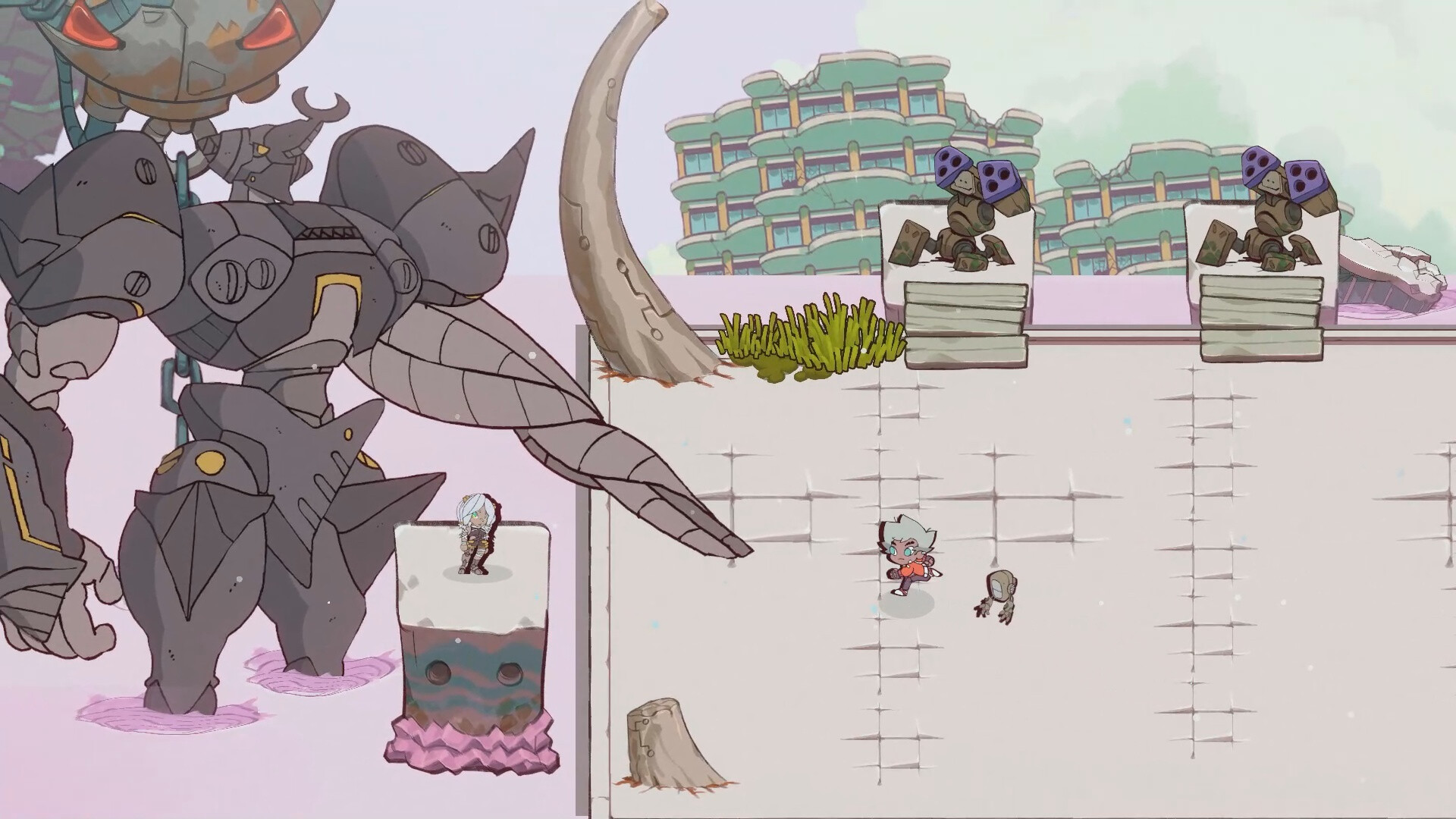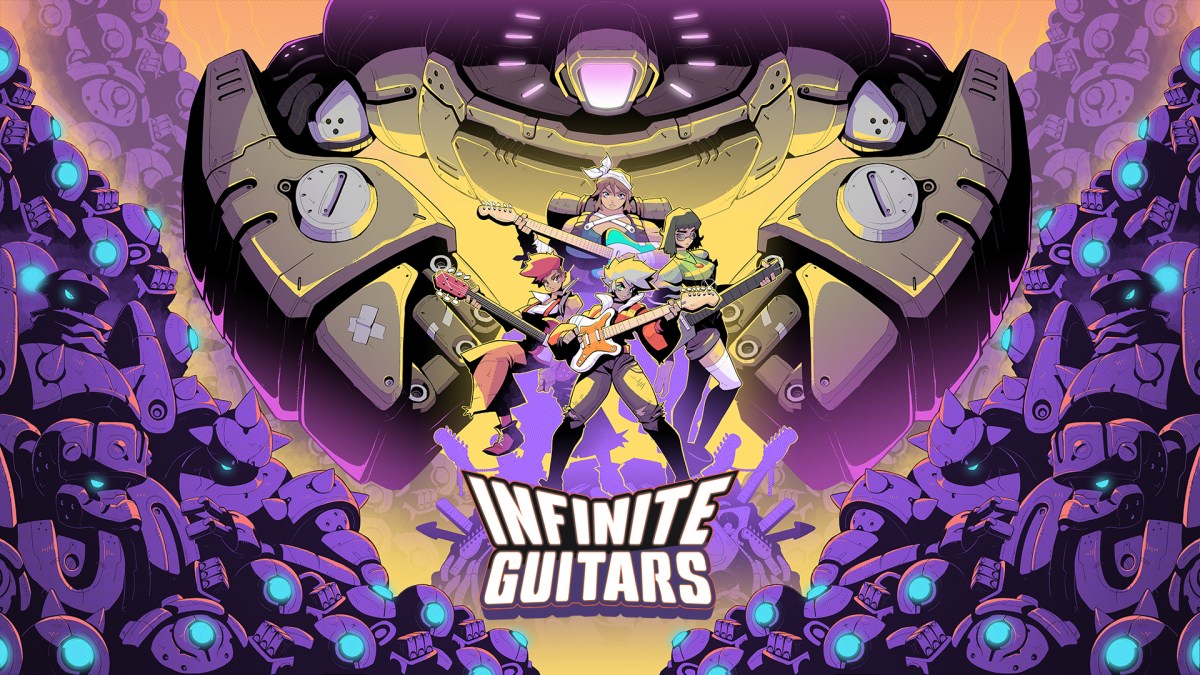Out on Xbox Game Pass, Nintendo Switch, and PC, Infinite Guitars is a rhythm-based RPG set in a music-powered world of hulking mechs and broken power cores. It’s packed with over-the-top cutscenes, pitting the remnants of humanity against once-slumbering war machines. Desolate floating islands and their inhabitants, paired with hand-drawn art and unique music themes, encouraged me to explore the so-so plot thread that ties them together. The game’s dialogue options let you pick between matter-of-fact and more crafty speech, directly impacting protagonist JJ’s attacks or defense stats.
Beating the game’s stages and opponents requires you to time your button presses to an incredible soundtrack. With a mixtape that dynamically adapts to the turn-based challenge presented to your party, it’s easily the highlight of my time with Infinite Guitars. While button-mashing to the beat is fairly straightforward, Infinite Guitars has party members with unique attacks that wager their health for special effects. Picking between risks felt like I was in a round of poker, except I could influence the outcome by pummeling mechs to the rhythm.
Infinite Guitars should have stuck to its turn-based rhythm duels. A heartfelt story backed up by a thumping soundtrack only added to its appeal. But its ambition to be more holds it back from greatness, with a mashup of genres that don’t quite support each other. Alternating between one action from a mech to one from your entire party also felt limiting. But before I got to these rhythm battles, the game’s action RPG elements slowed me down. I had to slog through two-dimensional maps filled with traps that protagonist JJ can barely dodge.
Since the game appears to be designed for a controller, walking across Infinite Guitars’ stages felt like a chore on a keyboard compared to other genre-mixers like Persona 5. Obstacles littered across the game send out beats of pulsing energy that need quick button presses to dodge. With multiple such pulses during the game’s unnecessary pre-rhythm battle scenes, I took longer to get to the final battle than to finish the enemy bosses themselves. Sprinting towards a boss, stabbing their toes, and rolling from a barrage of lasers before doing it over again felt like it was merely padding the experience. Don’t get me started on returning to an island’s main hub after seeing a boss, only to find the same maze of traps and robots you had just cleared.

It’s a shame because the rest of Infinite Guitars is great. A rhythm game that asks you to pause and consider your actions before backing your choices up with perfectly timed music strikes? The game sure knew how to get my attention. All those years spent on rhythm minigames in Dreamworks’ video game adaptations as a kid were finally paying off. The game’s music and ever-shifting button combinations meant that the game’s momentum renewed with each island I visited. And when it came to the enemy mechs’ turns, every dodge I took raised the damage I was dealt. I rolled about for fun until a single hit sent me back to the last checkpoint. This amped up the tension and redeemed what was technically a glorified minigame.
While Infinite Guitars’ music carries the game, extending its length outside of the rhythm battles slowly wore out my patience. A barebones movement system only made things worse as I attempted to dodge obstacles and clear the same path multiple times. The game would have handily earned a recommendation had it played its tune to its strengths instead of courting multiple genres.






Published: Apr 16, 2023 11:00 am